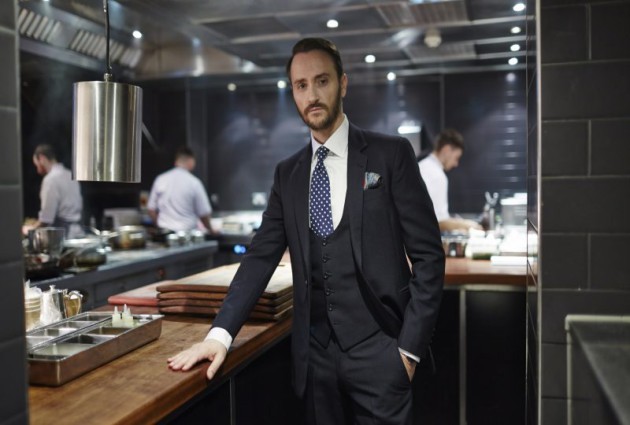
All-star panel talks how to deal with pandemic in restaurant environment
Building trust around social distancing rules will be the major challenge for restaurants looking to relaunch their businesses after lockdown eases, a leading on-trade panel has agreed.
With the end of lockdown approaching for bars and restaurants on 4 July, ‘trust’ was the magic word among a Flint Wines’ hosted panel discussion yesterday, which included a master sommelier line-up of Gearoid Devaney MS, Stefan Neumann MS and Clément Robert MS.
All sorts of logistical questions were fielded by the panel, including whether to allow walk-ins to restaurants or to rely on booking systems so 2m distancing rules can be observed; as well as whether Michelin-starred restaurants or casual dining chains are better equipped to deal with post-lockdown challenges.
There is “no magic recipe” as every restaurant is different – and the rules are changing all the time. When it comes down to it, however, “hospitality after Covid is about one thing - trust,” said Neumann, director of wine at Dinner and Mandarin Oriental.
“Trust between team members, from staff to guests, and from a company perspective to suppliers, too. If you have trust and a solid foundation, then you can adjust to the rules as you go. At Heston, we’re lucky to have a big space. We [used to] do between 80 and 120 covers every lunch, so if we half that, we’re still able to make a decent living.
“I do feel for smaller restaurants. The bigger groups are likely to have more knowledge to pool from and more cash flow. They will need this not only to get guests coming in, but money to spend with suppliers.”
On the issue of hygiene and safety, Jason Atherton, chef and director of Social Group which includes Pollen Street Social, added: “In the short term, those who go the extra mile will be successful as word travels fast. People will want to go back to all the places they missed. They will want to go back to their favourites and see their favourite waiter. But if they feel for a single second that you [as a business] are not taking a safety first approach, then it will backfire.”
All agreed that how to progress come 4 July would have to come down to the individual restaurant, with space being the major factor in how successfully a business will be able to operate.
This led some to highlight the major difference between the 2m social distancing rules currently being enforced in the UK versus the WHO guidelines of 1m distancing.
This also played into the issue of timing, with challenges around opening too early and getting it wrong, versus waiting until social distancing restrictions are reduced or even scrapped.
Some, like Sorella’s Sarah Gill – who still has businesses open via ‘thriving’ takeaway trade – suggested things like road blocks could help smaller businesses gain outside space and therefore get back to trading. However, she said she would “still rather have support from the government to stay closed so everyone is happy and safe, and then we’re able to reopen and trade properly”.
Atherton had some positive things to say from the business’ outpost in Shanghai, where the two restaurants currently open have enjoyed “the busiest month on record, up by 20% with no social distancing in place. That’s 60 covers doing 150 for lunch and 160 for dinner every day.”
Dubai’s hospitality industry opens up in a week, but with a government-imposed complete ban on alcohol eroding profits there.
“After Shanghai and Dubai, the UK is the next wave,” said Atherton. “And unfortunately inside London…the new furlough scheme doesn’t work. As a business, you’re paying 25% plus PAYE. But if you don’t need all those members of staff, why would you pay it? In central London restaurants, with the 2m distancing rules still in place, you’ll be running at 40% capacity. There's no wiggle room.”
“What we need is a members’ industry group to be able to speak to the government about these things,” he added. “What Pollen Street Social needs is completely different to what a pub or Leon needs. There are so many areas that need looking at, as our industry his so sensitive to these things. Either we do that or we face huge redundancies, not to mention Priti Patel’s immigration plan, [all of which] could put the industry back 20 years.”
The full discussion is available on Youtube.
Keywords:
- UK
- Restaurants
- industry
- restaurant
- need
- MS
- Pollen Street Social
- go
- social
- things
- social distancing
- distancing
- rules
- distancing rules
- solid foundation
- pollen street
- neumann ms
- social distancing rules
- 2m distancing rules
- hospitality industry opens
- WHO
- PAYE
- dubai’s hospitality industry





